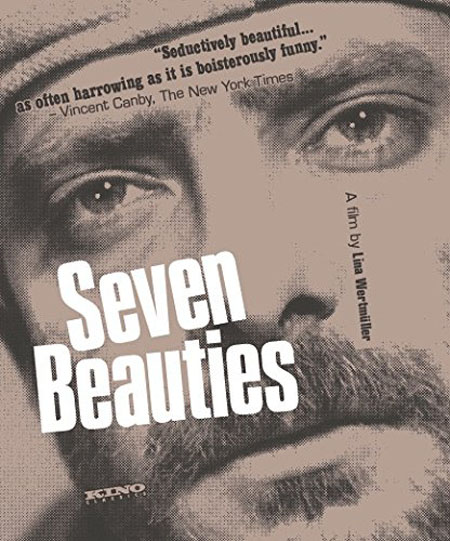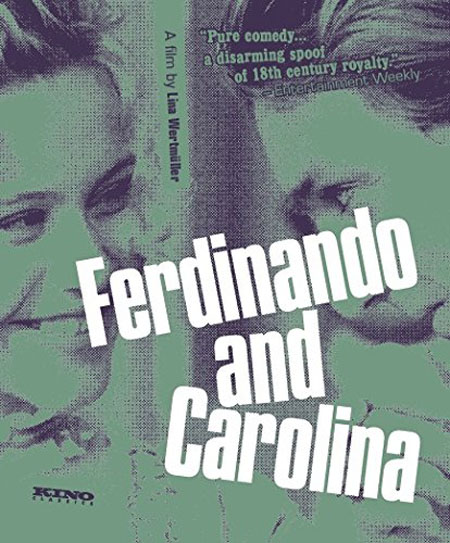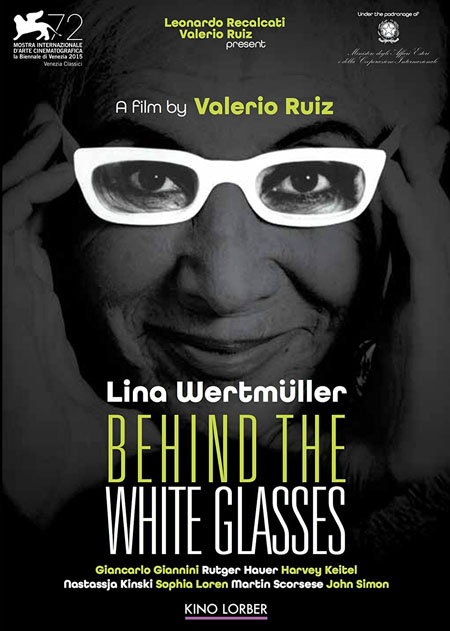
“A DASH OF UNUSUAL
BRILLIANCE BEHIND A FACE WITH WHITE GLASSESâ€
By Raymond Benson
The
somewhat snobbish critic John Simon has said that the only “great†female film directors are Leni Riefenstahl and Lina
Wertmüller. I’m sure we can all take issue with
such a sexist comment, but he is correct that both women were indeed “great,â€
even though the former is known for Nazi propaganda films of the 1930s. Wertmüller,
on the other hand, made different kinds of scandalous pictures—but at least ones
that were, and still are, entertaining. (They also sometimes had whimsically
long titles, such as The End of the World
in Our Usual Bed on a Night Full of Rain.)
In
the early to mid-1970s, Wertmüller was the face of
a daring new Italian cinema. When her movies were imported to America and the
U.K, she was dubbed the “Female Fellini.†In fact, she was once an assistant
director for the auteur. But Wertmüller’s
work took Fellini’s extravagance and pushed it to an extreme, creating her own
signatory brand of comedy, theatricality, biting satire, political commentary, and
often shocking truths. Four of her films released between 1972-1975, in which
she collaborated with the brilliant actor Giancarlo Giannini, established Wertmüller
as a powerful force of artistic vision. It is no small feat that she was the
first woman to be nominated for the Academy Award for Best Director.
Kino
Lorber has recently restored and released several Wertmüller
titles on Blu-ray and DVD, along with an excellent documentary on the woman
herself. Cinema Retro received an
assortment of them, all of which will be discussed here.
The
jewel in the crown of all of Kino Lorber’s Wertmüller disks is Seven Beauties (1975; released in the
U.S. and U.K. in 1976). It was the picture for which she received the Oscar
nomination (she lost to John G. Avildsen, for Rocky). It also received nods for Best Foreign Film, Best Actor
(Giannini), and Original Screenplay. Beauties
is a tour-de-force that features Giannini at his best as the swaggering
Pasqualino, a minor hood in Naples during World War II. He takes great pains to
protect the honor of his seven sisters, even though he isn’t so honorable
himself. When he is captured by the Nazis and sent to a concentration camp,
Pasqualino audaciously figures he can save himself by “seducing†the female
commandant, a monster of a woman played by Shirley Stoler.
Wertmüller
has an uncanny ability to combine the horrors of the Holocaust with the
absurdity of Pasqualino’s Chaplin-esque pathetic bravado. You wince and shudder
at the brutality on display—and then you find yourself laughing. Giannini, who
acts more with his eyes than anyone else I can think of, totally engages the
viewer with pathos and ridiculousness. In the end, Seven Beauties is a powerful statement about what man will do to
survive, and how expendable “honor†really is.
Kino
Lorber’s Seven Beauties Blu-ray is a
gorgeous 2K restoration with 2.0 stereo audio, in Italian with optional English
subtitles. Supplements include an interview with filmmaker Amy Heckerling about
the film and Wertmüller, an excerpt from the separately-released
documentary, Behind the White Glasses,
and trailers for other releases by the director. The booklet features essays by
director Allison Anders and film historian Claudia Consolati, PhD. Click here to order from Amazon.

Summer Night (or: Summer Night with Greek Profile, Almond Eyes
and Scent of Basil) (1986) stars Mariangela Melato (who co-starred with Giannini
in three of the 70s pictures) and Michele Placido in an obvious attempt to
recreate the magic that was Wertmüller’s crowd-pleaser,
Swept Away by an Unusual Destiny in the
Blue Sea of August (1974). Summer
Night, like the earlier film, is a bawdy romance between two characters with
fiery dispositions and opposite political stances. While this sexy romp is
somewhat entertaining, and the cinematography of the locales—set around
Sardinia—is breathtaking, the film doesn’t work. Both leads are too unlikable
to fully grasp onto. The Blu-ray, however, is an excellent presentation, also
with a 2K restoration and 2.0 stereo audio. The only supplements are trailers,
and the booklet features an essay by critic John Simon. Click here to order from Amazon

Ferdinando and Carolina (1999), with Sergio Assisi and Gabriella Pession, is more successful and a fine, late entry in Wertmüller’s body of work. It is a historical comedy-romance set in the 18th Century, focusing on Italian King Ferdinando and his bride Carolina, daughter of the empress of Austria. The couple’s heated passion for each other becomes more important than the duty to rule, which causes a few problems as war threatens Europe. It’s another racy gambol, and this time the attractiveness of the actors and the more capriciously directed love scenes serve the film well. The Blu-ray is presented with the same splendor as the other disks; again, trailers are the only supplements, and the booklet features an essay by critic Simon Abrams. Click here to order from Amazon

Finally, on DVD only, Valerio Ruiz’s documentary on Wertmüller, Behind the White Glasses (2015; U.S./U.K. release—2017), is an informative retrospective of the director’s career, featuring Wertmüller herself in feisty form (at age 87) singing rock songs (her compositions) in a studio, dancing alone, and reminiscing about her life. Scenes from many of her films are included, along with contemporary interviews with Giannini, Sophia Loren, Harvey Keitel, Martin Scorsese, John Simon, and others. Supplements are behind-the-scenes footage and trailers. A must-have for this remarkable woman’s fans.
Also available from Kino Lorber are Wertmüller’s other 70s classics—The Seduction of Mimi, Love and Anarchy, All Screwed Up, and Swept Away. Click here to order from Amazon
